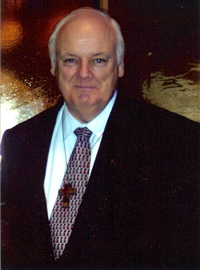|
A PLACE AT THE TABLE
I believe all our lives we are searching for a self-identity that begins with our earliest childhood, when we learn who we are in relationship to our immediate family. Sad to say, it sometimes happens that not every child feels like they have a place at the table, even in their own nuclear family. This can warp a child’s sense of well-being for the rest of their life. If we feel we did not have a place at the table as a child, then who would want us as teens and adults? As we explore the world beyond childhood I believe we are increasingly motivated to learn where is there an invitation; where are we made to feel welcome? Then, as we mature into the working world, and as we seek a partner with whom we can share our future, what I believe we are still looking for is a place where we are made to feel welcome. Much of where we end up and with whom we end up, will depend upon our sense of who we are; our self-esteem; and our accumulated history of where we have found a place at the table, and where we have failed to fit in. I am a genealogist by hobby and I am learning that when we begin to search out our historical backgrounds and our ancestral heritage, what we are really seeking is how our ancestors found a place at the table in the old country, then here in America. What troubles did they have to overcome, what gifts did they bring, and where were they made to feel welcome at the American table? As our ancestral roots become apparent through the written and oral records they left behind, we realize not everyone was blessed to find a place at the table; not every immigrant was welcome in the new country; not every good job was open to every ethnic group; not every color or religion acceptable at many of the so-called better tables of society. For many years the job signs read: ‘Irish need not apply.’ And while the target of the message changes, depending upon the latest ethnic immigration, their meaning does not. Clearly, not everyone is made to feel welcome at the American table. By finding and studying the history of our ancestors back in the annals of time, I believe we can find ourselves in the process; where we fit into the fabric of world society. Now, the science of DNA has been added to the research mix, helping us look at humanity’s origins on a more global and distant scale in time. This longer look back in time and ethnic relationship should help us be more sympathetic to those who are still searching for a place at the table, where their cultural and religious identity may be celebrated and affirmed by all. Rev John Gray, BS BA, MDIV Chaplain Emeritus, Sampson AFB Veterans Assn Chaplain, Ohio Squadron, SAFB Veterans Assn Grove City, OH Bio of Rev John Gray Rev. John Gray, BS BA, MDIV, TSgt, Retired, served in the US Air Force from 1955-1975. Rev. Gray became an Ordained Elder in the United Methodist Church in 1994, and served as pastor until his retirement in 2011. He is presently a Visitation Pastor at Glenwood UMC in Columbus. Rev. Gray has received numerous awards and professional recognitions. Rev. Gray has been active in his avocation as a genealogist/historian for over 35 years, in several different aspects of the hobby. Additionally, he is the founder of two national family associations and several family reunions, and wrote, edited and published a family newsletter for several years. He is the founder and judge of the 4-H Genealogy Day at the Ohio State Fair and teaches genealogy at local libraries. |


















